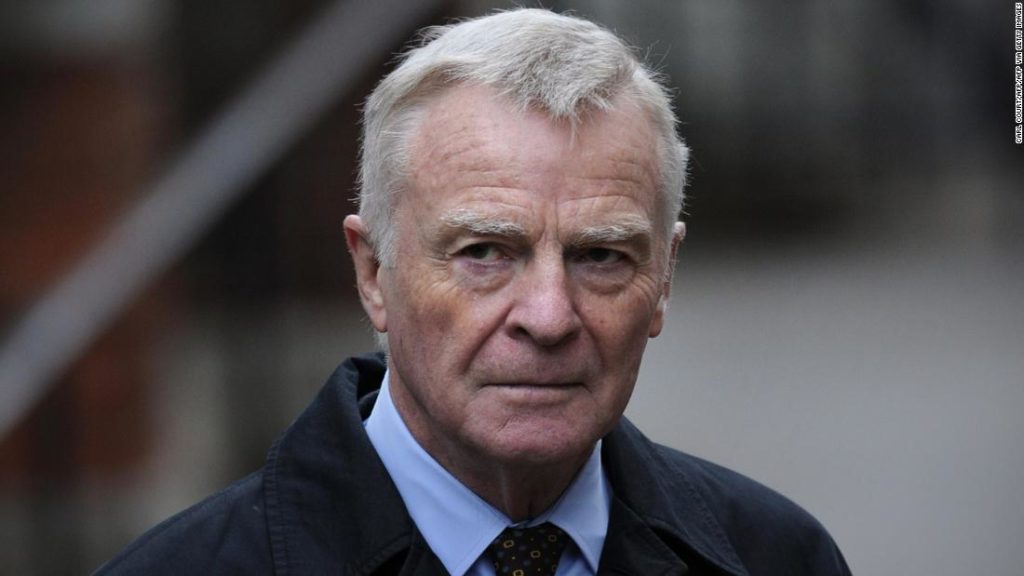
Mosley became FIA President in 1993 and served four terms before standing down in 2009.
His successor and current FIA President Jean Todt tweeted on Monday: “Deeply saddened by the passing of Max Mosley. He was a major figure in @F1 & motor sport. As @FIA President for 16 years, he strongly contributed to reinforcing safety on track & on the roads. The entire FIA community pays tribute to him. Our thoughts & prayers are with his family.”
“Everyone at Formula 1 is deeply saddened to learn of the death of Max Mosley. From a team owner to FIA president, he transformed our sport – and his legacy, particularly in safety, will last for generations. Our thoughts are with his family and friends,” Formula 1 tweeted on Monday.
The youngest son of Oswald Mosley, the leader of the British fascist movement in the 1930s, Mosley was a former racing driver and competed in more than 40 national races in the UK during 1966 and 1967, winning 12.
He retired from driving in 1969, after two serious accidents, but set up March Engineering, a racing car manufacturer, with several colleagues.
March placed five cars in the 1970 Formula One season and finished third in that year’s constructors’ championship. The team continued as a minor player until 1977.
Mosley’s position with March led to an invite to meetings of the Grand Prix Constructors’ Association.
In 1974 he helped create the new Formula One Constructors’ Association along with Bernie Ecclestone and other leading lights.
Mosley continued his involvement in motor sports through the 1980s, becoming president of the FISA Manufacturer’s Commission — part of motor sport’s governing body. He also founded Simtek, a firm specializing in technical advice for racing.
Mosely also campaigned for tighter press regulation after the UK’s News of the World newspaper published a story in 2008 alleging he was involved in a sado-masochistic orgy with five prostitutes that involved Nazi role-playing.
A British court found that there was no Nazi element to the incident and ordered the tabloid to pay Mosley damages in compensation in the privacy case.
You may also like
-
Super League: UEFA forced to drop disciplinary proceedings against remaining clubs
-
Simone Biles says she ‘should have quit way before Tokyo’
-
Kyrie Irving: NBA star the latest to withhold vaccination status
-
Roger Hunt: English football mourns death of Liverpool striker and World Cup winner
-
‘Every single time I lift the bar, I’m just lifting my country up’: Shiva Karout’s quest for powerlifting glory

